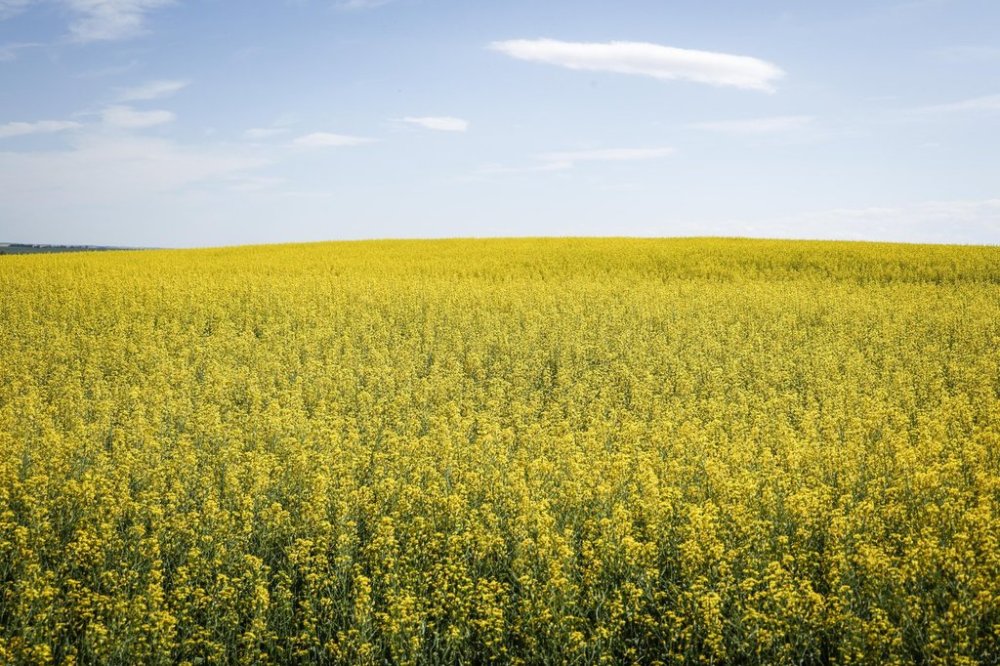Canadian farmland values rise nine per cent, but rate of growth on a downward trend
Advertisement
Read this article for free:
or
Already have an account? Log in here »
To continue reading, please subscribe:
Monthly Digital Subscription
$0 for the first 4 weeks*
- Enjoy unlimited reading on winnipegfreepress.com
- Read the E-Edition, our digital replica newspaper
- Access News Break, our award-winning app
- Play interactive puzzles
*No charge for 4 weeks then price increases to the regular rate of $19.00 plus GST every four weeks. Offer available to new and qualified returning subscribers only. Cancel any time.
Monthly Digital Subscription
$4.75/week*
- Enjoy unlimited reading on winnipegfreepress.com
- Read the E-Edition, our digital replica newspaper
- Access News Break, our award-winning app
- Play interactive puzzles
*Billed as $19 plus GST every four weeks. Cancel any time.
To continue reading, please subscribe:
Add Free Press access to your Brandon Sun subscription for only an additional
$1 for the first 4 weeks*
*Your next subscription payment will increase by $1.00 and you will be charged $16.99 plus GST for four weeks. After four weeks, your payment will increase to $23.99 plus GST every four weeks.
Read unlimited articles for free today:
or
Already have an account? Log in here »
Hey there, time traveller!
This article was published 18/03/2025 (248 days ago), so information in it may no longer be current.
Average Canadian farmland values continued their more than 30-year streak of increases last year, but Farm Credit Canada says the rate of growth is slowing and trade disruptions could further dent them.
The Crown corporation, which provides financing and other services to the agriculture industry, said in a report Tuesday that the average value of Canadian farmland rose last year by 9.3 per cent. In 2023 it saw an increase of 11.5 per cent, and in 2022 farmland appreciated by 12.8 per cent.
The last time farm values shrunk was in 1992.

“There’s a little bit of evidence that the increase in farmland values are slowing down, but it still remains a very large increase,” said FCC chief economist J.P. Gervais.
He said the main reason for the change in pace is the revenue decline farmers are seeing.
“We faced in 2024 a major reset of commodity prices,” he said, pointing to the COVID-19 pandemic and Russia’s invasion of Ukraine as reasons for an earlier spike in commodities.
Lower prices for grains, oilseeds and pulses led to an 11.8 per cent drop in main field crop receipts in 2024.
Gervais said FCC had an optimistic outlook for farmer revenues at the beginning of 2025 but now is calling for another year of decline as the U.S. makes tariffs on imported goods a centrepiece of its economic policy.
“The demand long-term is still very strong. It doesn’t change the story that we have for Canadian agriculture, which is the world needs more of what we grow,” he said.
In 2024, Saskatchewan led with the biggest increase in farmland values at 13.1 per cent, followed by British Columbia at 11.3 per cent. All other provinces had growth in the single digits, the report showed.
But trade disruptions — not only the tariff war the U.S. launched against Canada this month, but spats with other trading partners like China — are causing major challenges in the agriculture space and could weaken demand for farmland.
One is the inability to predict what’s coming, given that farming comes with high capital costs and thin margins.
“Uncertainty, instability – those are big impediments to investment,” said Gervais.
Declining interest rates might provide a bit of a cushion for those wanting to expand their farming operations, but revenues are in for a steep decline as key commodities get caught up in the tariff storm.
“The longer it lasts, the more impactful it would be,” said Gervais.
“If it stops tomorrow, it’s going to be a blip.”
This report by The Canadian Press was first published March 18, 2025.

